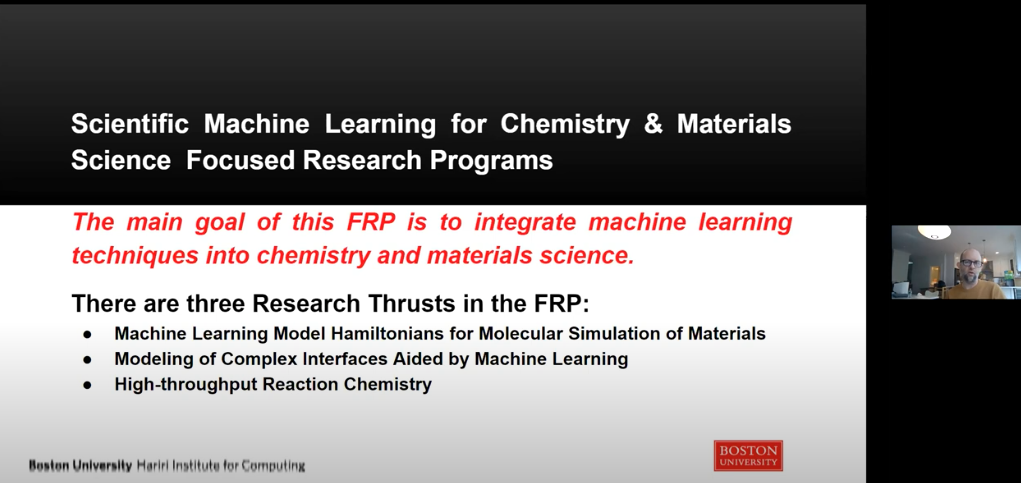How do you describe a molecule to a machine? A Focused Research Program converges to find the answer
BY: GINA MANTICA
Every surface is composed of thousands of tiny, individual, interacting atoms. To study how two surfaces interact, researchers have to take into account not only the characteristics of each atom, but also the properties of the larger surfaces that the atoms join together to create. Dealing with such large amounts of data is difficult. But faculty members in The Machine Learning for Chemistry & Materials Science Focused Research Program (FRP) think that machine learning can be used to model how different surfaces interact.

Machine learning is an aspect of artificial intelligence where a machine can improve its analysis over time with sufficient experience. The researchers plan to describe individual molecules and their interactions to a machine, so that the machine can then accurately model how different surfaces interact.

Researchers from Chemistry, Mathematics and Statistics, and Engineering converged on December 4 for the Fall FRP Workshop, “Representing molecules and reactions in machine learning” to brainstorm how to effectively and efficiently describe individual molecules to machines.
The group, headed by FRP leaders Associate Professor in Chemistry Aaron Beeler and Associate Professor in Mechanical Engineering Emily Ryan, reviewed current literature on the use of machine learning in chemistry and then broke into groups to discuss the challenges they face as they apply machine learning on the molecular level.
Working with complex data is challenging in general. But through convergence, the FRP researchers are accelerating their projects closer to their goals. For example, they hope to design surface interfaces that could be used for things like delivering medicines to specific cell types in the body. This recent FRP workshop proves that such important research convergence can flourish even in a virtual world.
Interested in reading more stories about the transformational science at the Hariri Institute? Sign up for our monthly newsletter here.
